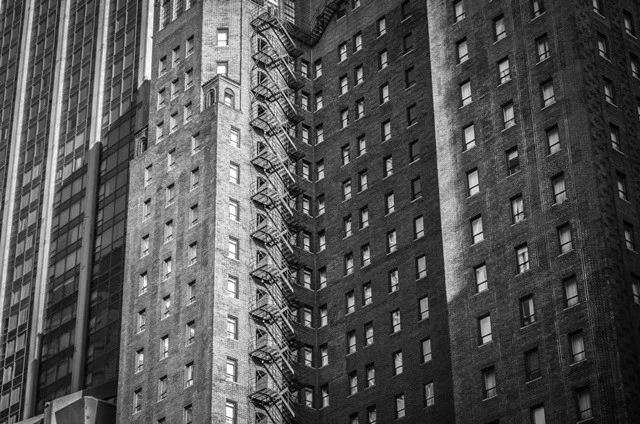
Compensation Claims on Commercial and Residential Premises
Published on May 18, 2016 by Adrian O’Dea
If an accident occurs in commercial or residential premises, the injured person may often look to make a compensation claim against the owner or occupier of the premises.
The claim may allege that there has been a failure by the owner or occupier to take reasonable care to avoid a risk of injury which was foreseeable and which may have been prevented.
It is often the case that an owner of commercial premises has appointed a managing agent to be responsible for the state of the premises. An owner of residential premises leased to a tenant may have appointed a real estate agent to assist in the management of aspects of the premises and the lease.
Depending on the facts of the case, the owner of premises may have a claim against the managing agent or real estate agent. Much will turn on the terms of the agency agreement between the owner and the managing agent and whether the managing agent has failed to comply with obligations under that agreement.
It may be that the managing agent or real estate agent owes a duty of care to the injured person, and that the injured person may be able make a claim directly against the managing agent or real estate agent for breach of that duty of care.
Terms of the agency agreement between the owner and agent
Each case turns on its own facts and it is important to ascertain exactly what obligations the managing agent owes under the agency agreement with the owner.
There are cases where the Court has held that an owner has effectively delegated its responsibility for the state of the premises to the managing agent under the terms of the agency agreement.
In the case of Laresu Pty Ltd v Clark [2010] NSWCA 180, Mr Clark was injured when he fell down stairs in a small retail and commercial building in Bankstown, Sydney. Mr Clark was visiting a friend who rented a shop on the ground floor of the building. When Mr Clark went to use the toilet located on the common property of the premises, he slipped and fell on a flight of stairs in an unlit area leading to the toilets. The light in the area was operated by an automatic light switch and it had automatically turned off some hours earlier. It was not possible for Mr Clark to manually turn on the light for the stairs. Mr Clark sued the owner of the premises and also the managing agent. The NSW Court of Appeal held that under the terms of the agency agreement between the owner of the premises and the managing agent, the owner had effectively delegated its responsibility for the state of the premises to the managing agent. However, this was subject to an express instruction the owner had given to the managing agent some years earlier in relation to the setting of the automatic light switch. The owner had given instructions to the managing agent for the automatic light switch to be set so as to cause the lights in the area to be on only between 8.00am and 6.30pm. Notwithstanding that in a general sense the owner had delegated management of the premises to the managing agent, the state of the lighting was, because of this instruction, something for which the owner had some responsibility. The Court also found that the managing agent should have recommended to the owner that the light be kept on until much later in the evening or be kept on for 24 hours of the day. In all the circumstances, the Court considered that the owner was 40% responsible and the managing agent was 60% responsible for the liability to Mr Clark.
In the case of Peter A Simon Real Estate Pty. Ltd v Ghabash & Ors; Chung & Anor v Ghabash [2004] NSWCA 467, Mr Ghabash operated a restaurant business in commercial premises he rented from the owner, Mr Chung. Mr Chung had retained Peter A Simon Real Estate as the managing agent of the premises. There was a fire in the premises caused by an electrical fault, which in turn was caused by water leaking into the ceiling space. Mr Ghabash had previously made complaints to both Mr Chung and Peter A Simon Real Estate about the problem of water leaking into the ceiling space, however the problem was not attended to. Mr Ghabash made a claim against both Mr Chung and Peter A Simon Real Estate and the primary judge found that Mr Chung and Peter A Simon Real Estate were equally responsible for the damage suffered by Mr Ghabash.
Mr Chung and Peter A Simon Real Estate appealed to the NSW Court of Appeal, who found that Mr Chung was liable but that Peter A Simon Real Estate was not liable. The Court of Appeal was not satisfied that Peter A Simon Real Estate was responsible, under the terms of its arrangement with Mr Chung, to undertake the necessary repairs on its own initiative. Mr Chung did have responsibility to undertake such repairs and ensure the premises were safe. Even if it was true that Peter A Simon Real Estate had not passed on Mr Ghabash’s complaints about the water leaking to Mr Chung, because of the fact that Mr Chung already knew about the problem, any failure on the part of Peter A Simon Real Estate to pass on the complaint did not cause any loss.
Key questions to consider
If there is an accident at commercial or residential premises, and the owner has appointed a managing agent or real estate agent to manage the premises, some key questions to consider are:
- What are the exact terms of the contract between the owner and managing agent?
- Is the managing agent responsible for ensuring the premises are safe?
- Is the managing agent responsible for effecting repairs on their own initiative (at least up to a certain monetary limit) without having to obtain approval from the owner?
- Should the managing agent have been aware of the danger or made recommendation to the owner concerning prevention of a possible danger?
- Is the managing agent responsible for ensuring that details of the danger are notified to the owner?
- Was the owner already aware of the danger in any case?
- Was the risk something which required urgent attention and should the managing agent have ensured that the owner knew about the seriousness of the danger immediately?
- Do the owner/occupier and managing agent have insurance in place to cover any potential claim made against them and, if so, has the insurer been notified?
When an accident occurs in commercial or residential premises, the potential liability of the owner / occupier and any managing agent is not always clear. Much will depend on the particular facts and circumstances of the case and the terms of any contract between the owner and managing agent.
The information contained in this article is not to be taken as legal advice. Please contact us if you require specific information or advice.
